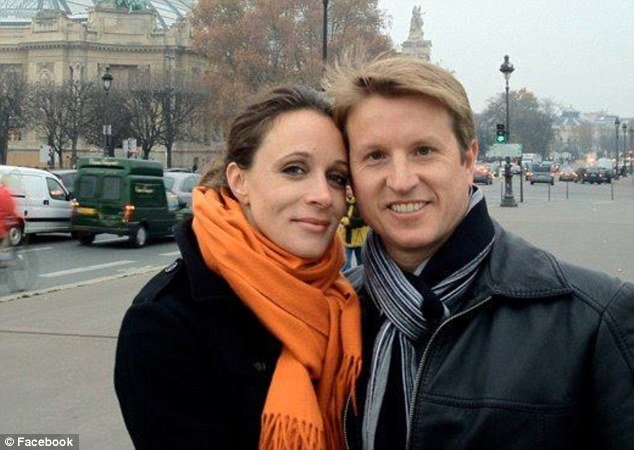
New reports claim that Paula Broadwell’s husband, Dr. Scott Broadwell, sent a letter to New York Times advice column The Ethicist back in July that revealed he knew of her affair with CIA Director David Petraeus.
That intriguing possibility has been raised after canny observers dug out the July 13th edition of Chuck Klosterman’s The Ethicist and pointed to extraordinary coincidences between one readers letter and the now scandalous love tryst.
Writing about a deepening relationship he knew his wife was having with a “government executive” whose job “is seen worldwide as a demonstration of American leadership” the anonymous man offers up what could be considered in hindsight as striking information.
The letter writer explains that “exposing the affair will create a major distraction that would adversely impact the success of an important effort”, and asks The Ethicist whether it is OK for him to “suffer in silence for the next year or two for a project”.
Indeed, he seems pained to make it clear he believes the mission “must succeed” and wants to know if he should confront his wife in some way and “finally force closure” or if he should “suffer in silence for the next year or two”.
The reader tells The Ethicist that has “watched the affair intensify over the last year” – which matches the timeline of the affair from August 2011 until around several months ago.
However, some have questioned whether the coincidences are just that and if the letter really was penned by Scott Broadwell.
Slate writer Allison Benedikt asked: “What government executive is not having an affair with some guy’s wife?”
Another writer with the publication added: “Would anyone really repeatedly refer to heading the CIA as a <<project>>? Doesn’t sound quite right.”
Those supporting the belief that the letter came from Scott Broadwell, point to Chuch Klosterman’s insightful reply to the anonymous man’s dilemma.
He tells the letter writer that he should tell his wife he wanted to separate, “just as you would if she were sleeping with the mailman”.
He claims there is no reason to reveal the affair in a public fashion, but having offered this clear-cut advice he goes slightly further.
“The fact that you’re willing to accept your wife’s infidelity for some greater political good is beyond honorable,” replied Chuck Klosterman on July 13th to the letter.
“In fact, it’s so over-the-top honorable that I’m not sure I believe your motives are real.
“Part of me wonders why you’re even posing this question, particularly in a column that is printed in The New York Times.
“I halfway suspect you’re writing this letter because you want specific people to read this column and deduce who is involved and what’s really going on behind closed doors (without actually addressing the conflict in person).
“That’s not ethical, either.”

Heartbroken Husband or Whistleblower? The New York Times Letter in Full
“My wife is having an affair with a government executive. His role is to manage a project whose progress is seen worldwide as a demonstration of American leadership. (This might seem hyperbolic, but it is not an exaggeration.)
I have met with him on several occasions, and he has been gracious. (I doubt if he is aware of my knowledge.) I have watched the affair intensify over the last year, and I have also benefited from his generosity.
He is engaged in work that I am passionate about and is absolutely the right person for the job. I strongly feel that exposing the affair will create a major distraction that would adversely impact the success of an important effort.
My issue: Should I acknowledge this affair and finally force closure? Should I suffer in silence for the next year or two for a project I feel must succeed?
Should I be <<true to my heart>> and walk away from the entire miserable situation and put the episode behind me?” NAME WITHHELD